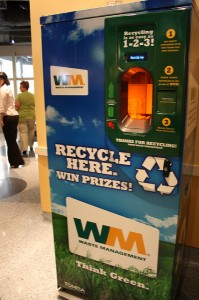Brewers tackle glass recycling question
Glass recycling highlights glass benefits
Bottlers are interested in recycling glass because it costs them less to recycle bottles than it does to make bottles from new materials. Lower energy costs mean lower operating costs. This in turn means better profits and an improved ability to tolerate small changes in the cost of production. The recycled content of some container glass is 95% or more, but that typically doesn’t happen in the United States.
About 30% of the container glass in the US actually makes it into the recycling stream. The number could be higher, but many recyclers choose to pulverize the glass and use it for landfill cover instead of truly recycling it.
About 20 major companies that use glass packaging have come together to help ensure the stream of recyclable glass. The US Glass Recycling Coalition consists of consumer goods manufacturers, glass manufacturers, waste and recycling operators, and trade organizations like the Glass Packaging Institute.
The first priority for the coalition is to create, implement and encourage industry-wide best practices that help improve the amount of container glass that makes it into (and out of) the recycling process. One of the first “best practices” is to sort glass out of the recycling stream immediately, instead of waiting to remove it at the end of the sorting process. Removing the glass immediately saves wear and tear on the sorting equipment, decreases the likelihood of breakage, and increases the amount of recyclable glass that gets forwarded to glass recyclers. The long-term goal of the recycling coalition is to reduce energy consumption and to help avoid material shortages in the future.
Glass recycling is part of the growing trend toward using glass. Glass is an exceptionally durable and versatile material for both packaging and decoration. If you’d like some glass inspiration, please visit the rest of our site. If you’d like to purchase Glassprimer™ glass paint, please visit our online store .
Photo Credit: Amber and Eric Davila, via Flickr.com




